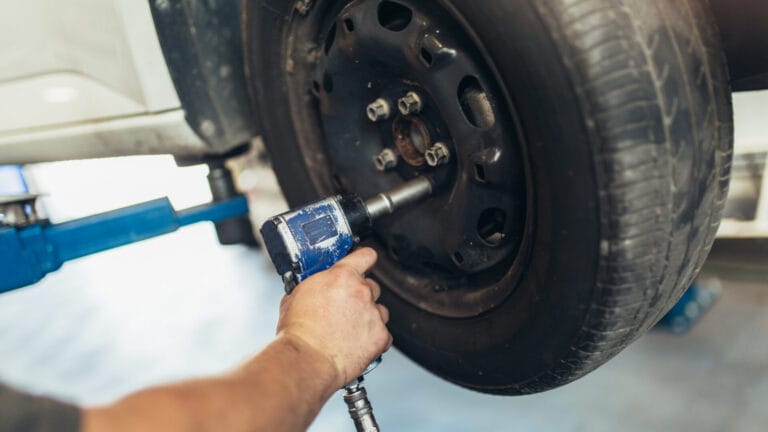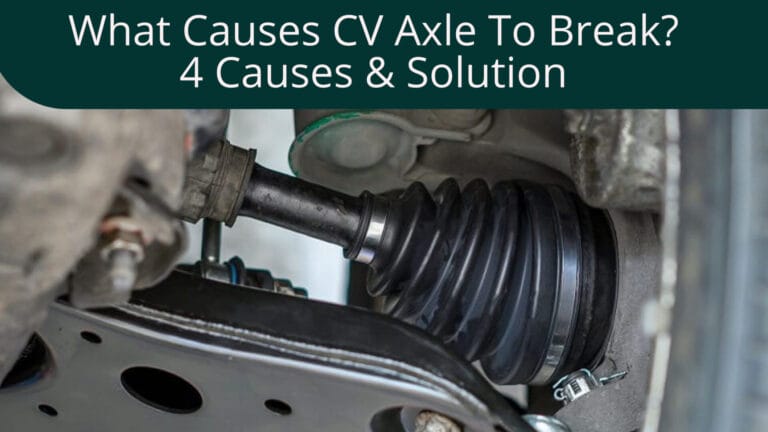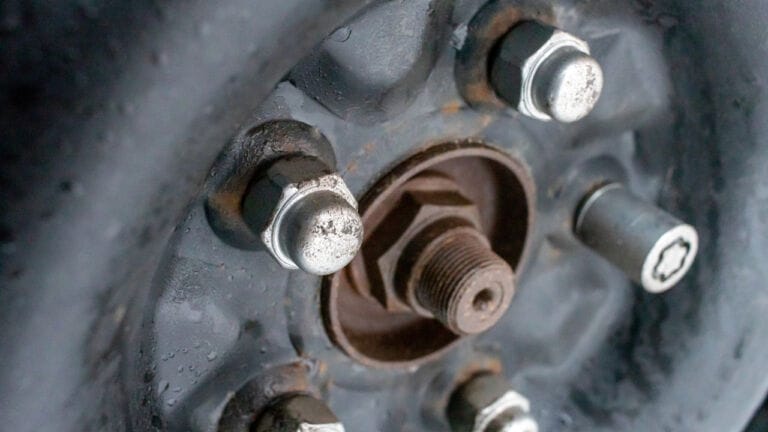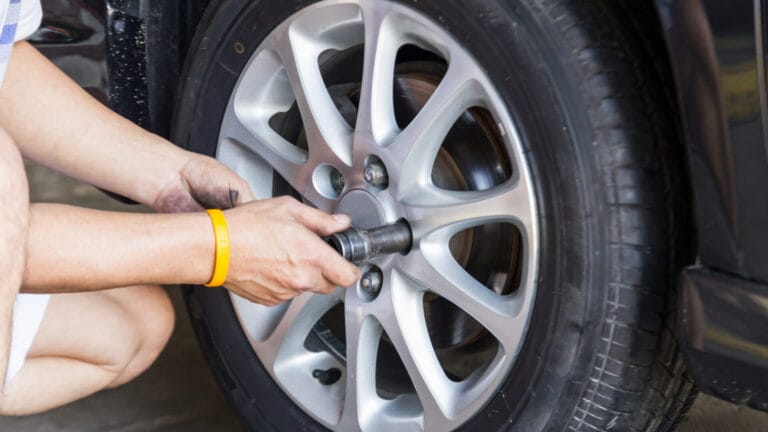Can You Tighten Lug Nuts on The Ground?
Lug nuts play an imperative role in the safety of your vehicle. Tightening them correctly is of utmost importance to avoid any accidents on the road. But have you ever wondered if tightening lug nuts on the ground is safe? Can you tighten lug nuts on the ground?
Yes, you can tighten lug nuts on the ground, but due to uneven torque distribution, you can face wheel wobbling, vibrations, and even the dreaded wheel detachment.
You see, when the car is on the ground, its weight is primarily resting on the wheels, making it challenging to apply even torque to each lug nut. So, some wheel lug nuts may end up tighter than others due to this uneven torque distribution. This will put unnecessary strain on your lug stud, leading to imbalanced pressure on the alloy wheels, affecting its alignment, and potentially causing handling issues.
Additionally, there’s also a higher risk of cross-threading that damages the threads and weakens the connection, making it more prone to bolt loosening over time. That’s why professionals use torque wrenches for accurate tightening and recommend tightening wheel nuts on the ground only when no other options are available.
So, instead of relying on the ground for support, invest in a proper jack stand and use wheel chock to ensure each lug nut is tightened to the appropriate level. Tightening lug nuts in the right way may take a little extra time and effort, but it will keep you and your car secure and safe for the road ahead.
Understanding The Basics of Lug Nuts
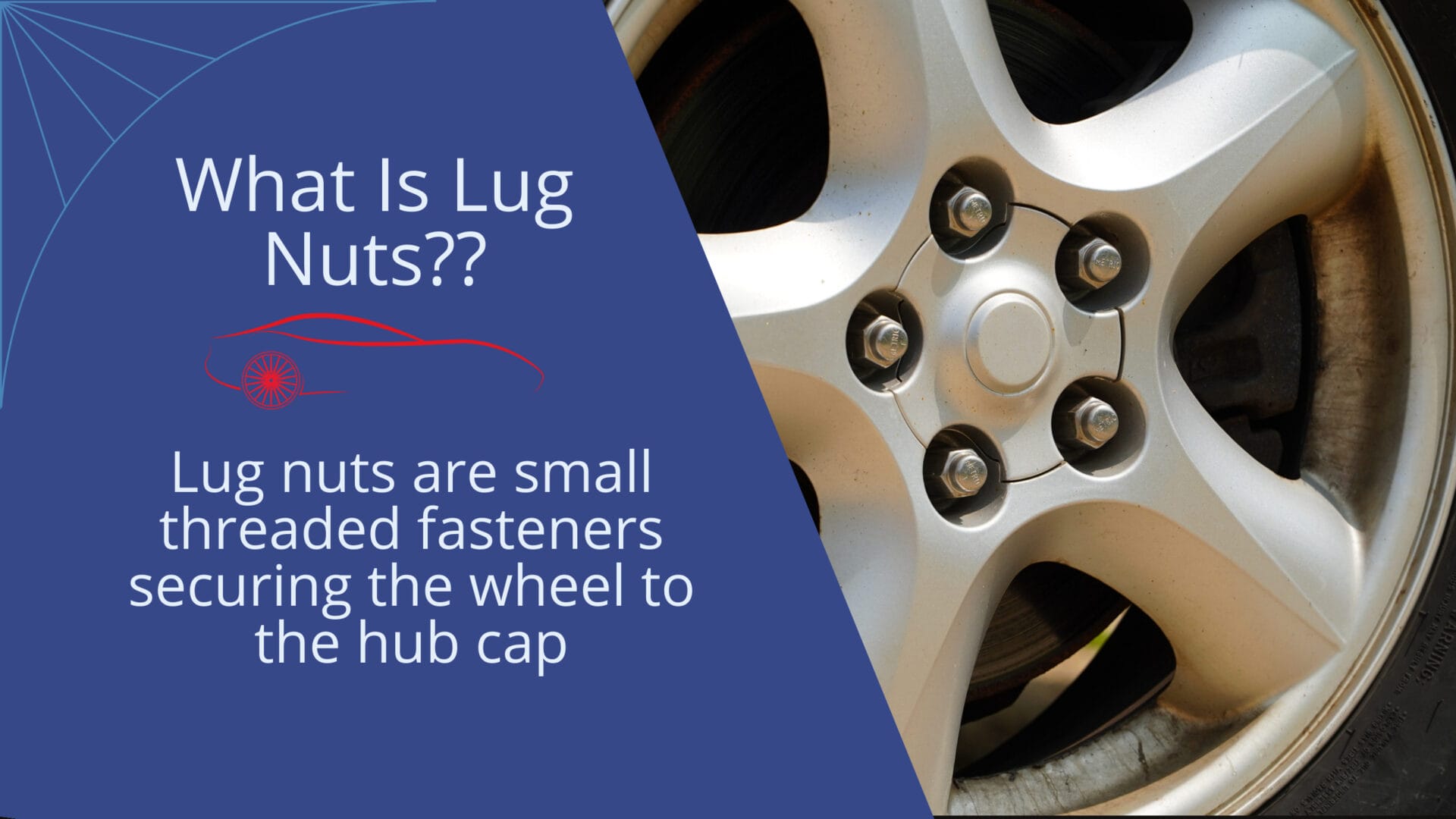
Lug nuts are small threaded fasteners that secure the wheel to the hub cap, ensuring wheel alignment and stability. While they might not always be in the spotlight, they’re undeniably the unsung heroes of your vehicle’s safety. They come in various sizes, designs, and materials, typically requiring a wrench for tightening. When tightened correctly, they ensure that your wheels stay firmly attached, providing stability and enabling your tires to rotate with your vehicle. Neglecting them can result in wheel wobbling, improper alignment, tire wear, flat tires, and an unsecured connection between the wheel and wheel hub.
Think of them as the sturdy handshake between your tires and your vehicle. They distribute the weight of the vehicle evenly, enhancing stability and maneuverability.
The Consequences of Loose Lug Nuts
A loose lug nut is not just a minor inconvenience; it’s a recipe for disaster. Loose lug nuts can cause your wheel to wobble or even detach completely, leading to loss of control and potential accidents. It’s not just about protecting your car; it’s about safeguarding yourself, your passengers, and other road users.
Let’s know some consequences of loose lug nuts.
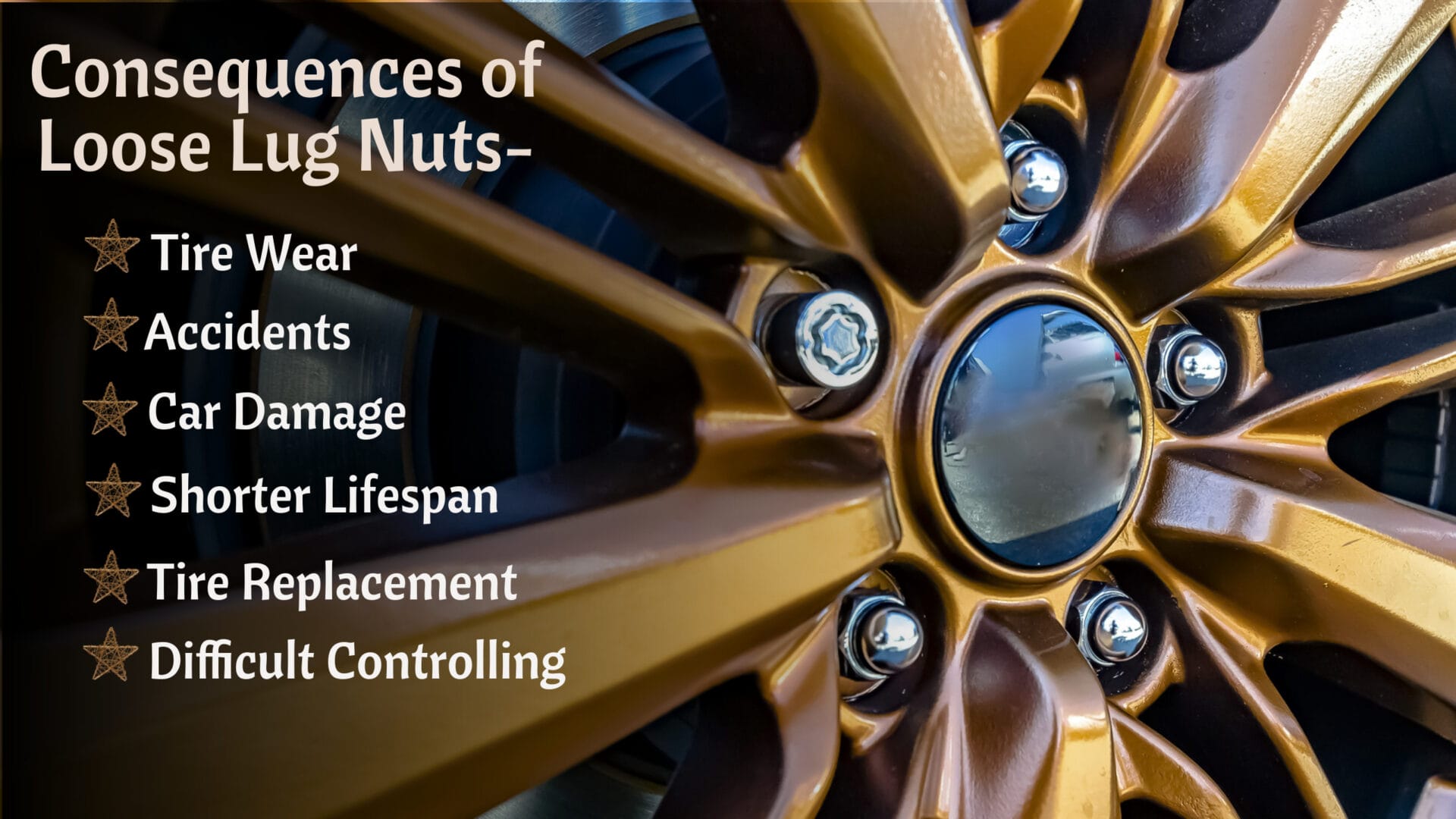
- If your lug nuts are loose, your wheel will not be aligned correctly, resulting in uneven tire wear, shorter lifespan, and higher tire replacement costs.
- Loose wheel nuts can impact your vehicle’s handling and steering, making maintaining control difficult, especially in emergencies.
- The worst-case scenario is a car tire separating from your car while in motion. This can cause accidents, harm to you and others, and damage your vehicle significantly.
Why You Should Avoid Tightening Lug Nuts on the Ground
While tightening lug nuts on the ground, you may tighten one lug nut more than the others, believing they’ve achieved the desired torque. Later, during a long road trip, you will notice steering vibrations, an uncomfortable ride, and uneven tire wear. This results from variable torque and wheel imbalance caused by inadequate lug nut tightening.
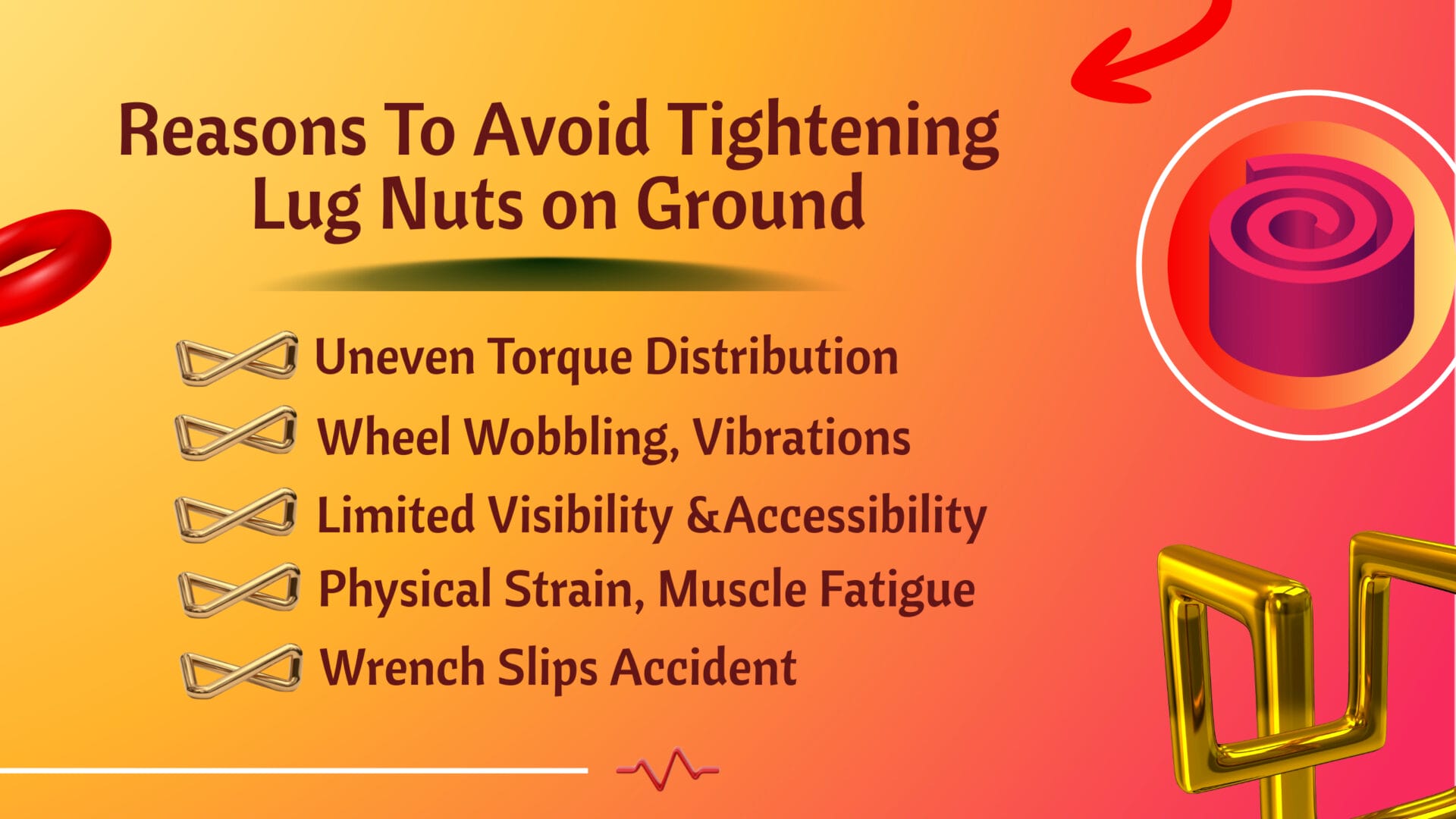
- Tightening lug nuts on the ground has the potential for uneven torque distribution. Achieving the manufacturer’s recommended torque spec for lug nuts can be challenging on the ground. You can’t apply clamping force to each lug bolt when using a simple lug wrench or breaker bar. This final torque inconsistency may result in lug nuts being tightened to different degrees, leading to issues.
- Unevenly tightened lug nuts can cause wheel imbalance. A balanced wheel is crucial for smooth and safe driving. When lug nuts are not evenly torqued, the wheel may wobble, leading to vibrations, steering problems, warped rotors, and uneven spare tire wear. This can result in a less comfortable and less safe driving experience.
- While uneven lug nut torque is a concern, there’s also a risk of over-tightening lug nuts. You may need excessive force when tightening the wheel bolts, leading to over-compression and potential damage to the aftermarket wheels, parking brake components, or studs.
- When working on the ground, you will have lower space, which means you will have limited visibility and accessibility to the lug nut areas and aluminum wheel components.
- It can cause physical strain, muscle fatigue, or discomfort while kneeling or crouching on the ground. There’s also a risk of injury if the vehicle is not adequately secured or the wrench slips during the process.
Ground vs. Air: Which is Better for Lug Nut Tightening?
When it comes to tightening lug nuts, you’ve got options: the ground or the air (with a trusty vehicle lift). Each method has its own unique charm, but tightening lug nuts in the air rather than on the ground is safer and more efficient.
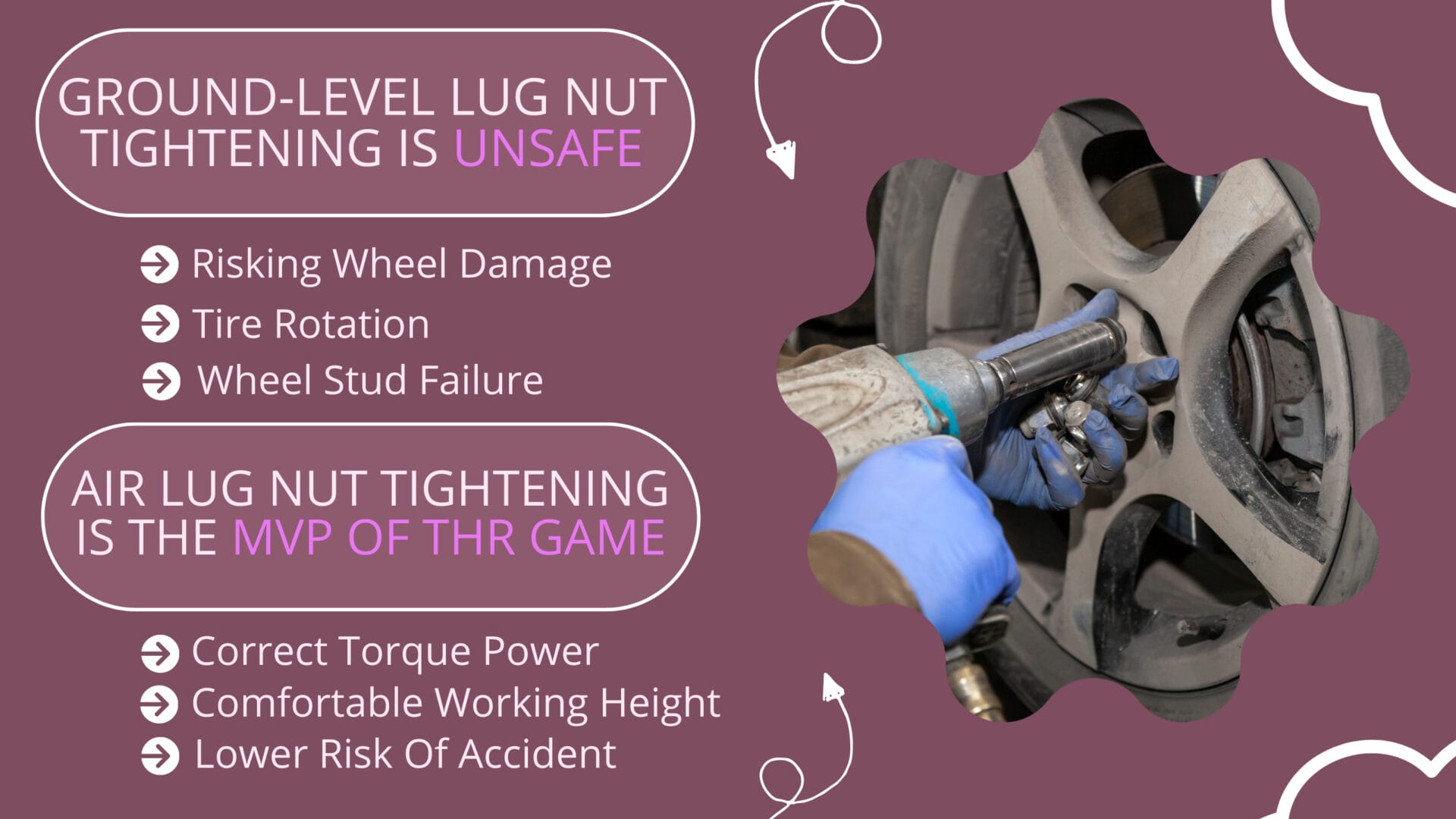
Ground-level lug nut tightening is like the old faithful; it’s accessible, budget-friendly, and a go-to for home mechanics and DIY enthusiasts. But here’s the kicker: it’s not exactly the safest play in the garage due to the wrong torquing distribution. You’ll be dancing on uneven torque-setting territory, risking wheel damage, tire rotation, wheel stud failure, or, dare we say it, wheel lug detachment when tightening lug nuts on the ground.
Now, picture the air lug nut tightening with a vehicle lift at a comfortable working height—it’s the MVP of the game. It provides a safer and more controlled environment with better torque stick power, reducing the risk of accidents compared to working on the ground. Because you will have the correct torque power (110 N⋅m and 120 N⋅m) that meets the manufacturer’s torque specification. Then, you can safely tighten the lug nut without worrying about overtightening, undertightening, or cross-threading. You also get a backstage pass to inspect and service undercarriage components like brakes and suspension quickly.
So, while the ground method may have that “DIY on a Saturday” vibe, air lug nut tightening with a lift is the pro-level choice for any tire shop, bringing efficiency and a sprinkle of swagger to the game. Safety, accessibility, and a well-done job – all in one smooth lift.
FAQ
Do You Tighten Lug Nuts On Jack Or Ground?
I avoid tightening lug nuts on the ground and do it on the jack for safety and accuracy. It ensures proper seating and reduces the risk of a loose wheel.
How Tight Should I Tighten Lug Nuts By Hand?
You should avoid tightening lug nuts by hand because it’s hard to achieve the correct torque (110 and120 N⋅m) setting with your hand. It will make the nuts snug, but not overly tight. If you can’t match the prescribed torque settings, it can damage the threads of the bolts or nuts.
Why Do Wheel Nuts Come Loose?
Wheel nuts can come loose due to not matching the manufacturer’s torque specifications. Uneven torque distribution causes vibrations, corrosion, or improper installation, and as a result, wheel nuts come loose.
How Often Should You Replace Lug Nuts?
Lug nuts typically don’t need regular replacement; some vehicles need replacement after five years, and some after 10 years. It depends on the vehicle type and age. However, it’s essential to check them for wear & tear and replace them if damaged or corrupted.
Closing Words
In conclusion, you can tighten lug nuts on the ground, but you shouldn’t. It’s a matter of safety, reliability, and the overall performance of your vehicle. Improper lug nut tightening can result in various issues, from wheel imbalance and uneven tire wear to the frightening possibility of wheel detachment while on the road.
We’ve shown that while ground-level lug nut tightening might have a budget-friendly appeal, it comes with risks and challenges. Uneven torque distribution, the risk of over-tightening, and wheel imbalance are just a few of the pitfalls that can await those who opt for this method.
So, it is advisable not to tighten lug nuts on the ground for better stability and accuracy

